Control & Instrumentation Training
The Control & Instrumentation training course covers the practical maintenance aspects of industrial instrumentation with three modules Measurement, Valves and Controllers and is designed to be progressive with each module building on the previous.
Training consists of three training modules normally delivered over 8 days in two blocks of four days or similar combination to suit shift working patterns. The training delivery can be adapted to suit company’s specific requirements in terms of application, hands on practice or specific customer equipment. The training can be on site our Rochester training centre.
This is a highly practical training course focusing on industrial Instrumentation maintenance practices and fault-finding procedures with a lot of the training being hands-on work directly related to the course content.
Instrumentation - Measurements (T3) Module 1
Signals and Standards:
- Pneumatic Signals
- Voltage Signals
- Current Loops
- Loop Connections
- Power Supplies
Process Measurement
- Temperature - Resistance, Thermocouple
- Pressure - DP Cells, Gauge, Differential, Absolute
- Level - Head Pressure, Capacitive
- Flow - Orifice Plate, Magflow, Vortex
Indication and Recording Equipment
- Digital and Analogue Indicators
- Installation and Calibration
- Zero adjustment
- Span adjustment
- Standard (calibration) equipment
- Commissioning and bringing on-line
Smart Transmitters
- Setting up and calibrating using a Smart TransmitterSafety procedures will be covered at each stage and practical exercises will cover the use of isolating/equalising manifolds on flow systems, the use of pockets in conjunction with temperature probes etc. The implications of working on sensors which form part of a control loop will also be covered along with recommended safe working procedures.
Instrumentation - Actuators & Controllers Module 2
Values & Actuators
Pneumatic Signals:
Pneumatic Instrument - Components:
- Flapper/Nozzle
- Air Relays
- Bellows
- Booster Relays
Pneumatic Instrument - Equipment
- I/P Convertors
- P/I Transmitters
- P/P Transmitters
Control Valves
- Types, Component Parts
Control Valve Actuators
- Direct Acting
- Reverse Acting
- Double Acting
Control Valve Positioners
- Types of Positioner
- Fault-Finding
Valve Characterisation
PID Controllers
Basic Principles of Closed Loop Control Systems
- Feedback in a control system
- Terminology in control systems - Set point, Process Variable, Output
- 3-controller operating modes - Automatic, Manual, Remote, Internal
- Basic closed loop systems and their operation
Types of Control
- Open loop, Closed loop, Feed-forward control
Controller Actions
- Proportional, Integral, Derivative
- Tuning a PID controller to a process
Control Systems Configuration
- Cascade Control, Ratio Control• Problem Solving
- Measurement techniques in a control loop
- Analysis of controller problems and diagnosis of faults
Instrumentation - Adanced Process Controls Module 3
The course is aimed at maintenance engineers who need to understand networks, either for fault finding or modification. This course is suitable for candidates who have done module A and B, or we can demonstrate experience to that level.
Serial and Highway Communication
- Wiring and connection requirements
- Use of spurs and terminators
- Principle of packet transfers
- Common Wiring errors
Modbus
- RTU and ASCII systems
- Station numbers and limits
- Master and slaves
- Modbus registers
Profibus
- DP and AP
- Speed limitations and settings
- Master and slaves
- Common Wiring
- Interrogating data buffers in the master
- Commissioning and bringing online
- PLC and SCADA Programming
Retrieving Modbus and Profibus data from PLCs and displaying on a SCADA system. Common programming techniques to keep this process manageable.
This course enables trainees to,
- Measure current loop signals
- Connect additional instruments into current loops
- Carry out calibrations involving pressure, temperature, level and flow
- Calibrate delta P and gauge pressure transmitters
- Zero and span 4 – 20mA current loops
- Calibrate I to P convertors
- Understand pneumatic valve positioners
- Set up valve positioners
- Stroke check valves
- Adjust valve actuators
- Operate single loop controllers in Manual or Auto
- Change modes using remote Setpoints
- Set alarms levels and high lo range warnings
- Adjust PID settings for loop response
- Understand Controller faceplate indications during problem solvin
This is a 4 day course.


